Engage with Problem-Based Learning
At Maastricht University (UM), we care not only what you learn but also how you learn. Here, you are part of an interactive and meaningful learning experience called Problem-Based Learning (PBL). Most of your education takes place in groups of 10 to 15 students, so you’re not just a face in a crowded lecture hall.
Working in small teams makes it easy to connect with peers and stimulate each other's learning. Through teamwork and assignments, you actively engage with knowledge and exchange ideas. This collaborative environment allows you to see things from multiple perspectives, giving you a better understanding of the subject matter and helping you come up with creative, well-reasoned solutions.
Our dedicated teaching staff serve as facilitators, providing guidance when needed, but your curiosity and imagination lead the way.
Problem-Based Learning (PBL) teaches you to be proactive and open-minded. You develop the critical thinking, effective communication, time management, teamwork and problem-solving skills that employers are looking for.
You're in the driver's seat
At UM, learning is active. You won’t just sit back and take notes. Your questions and curiosity drive the learning process. You’re presented with actual problems or cases and, together with your fellow students, you determine what approach you want to take to solve it and what you need to learn in the process. This helps you truly understand the subject matter, rather than just memorising facts.
Learning formats can differ depending on the programme you choose. But you have a lot of freedom to manage your study time. This requires self-discipline and can be a challenge sometimes, but our teaching staff are always there for support, providing feedback and regular assessments to ensure you stay on track.
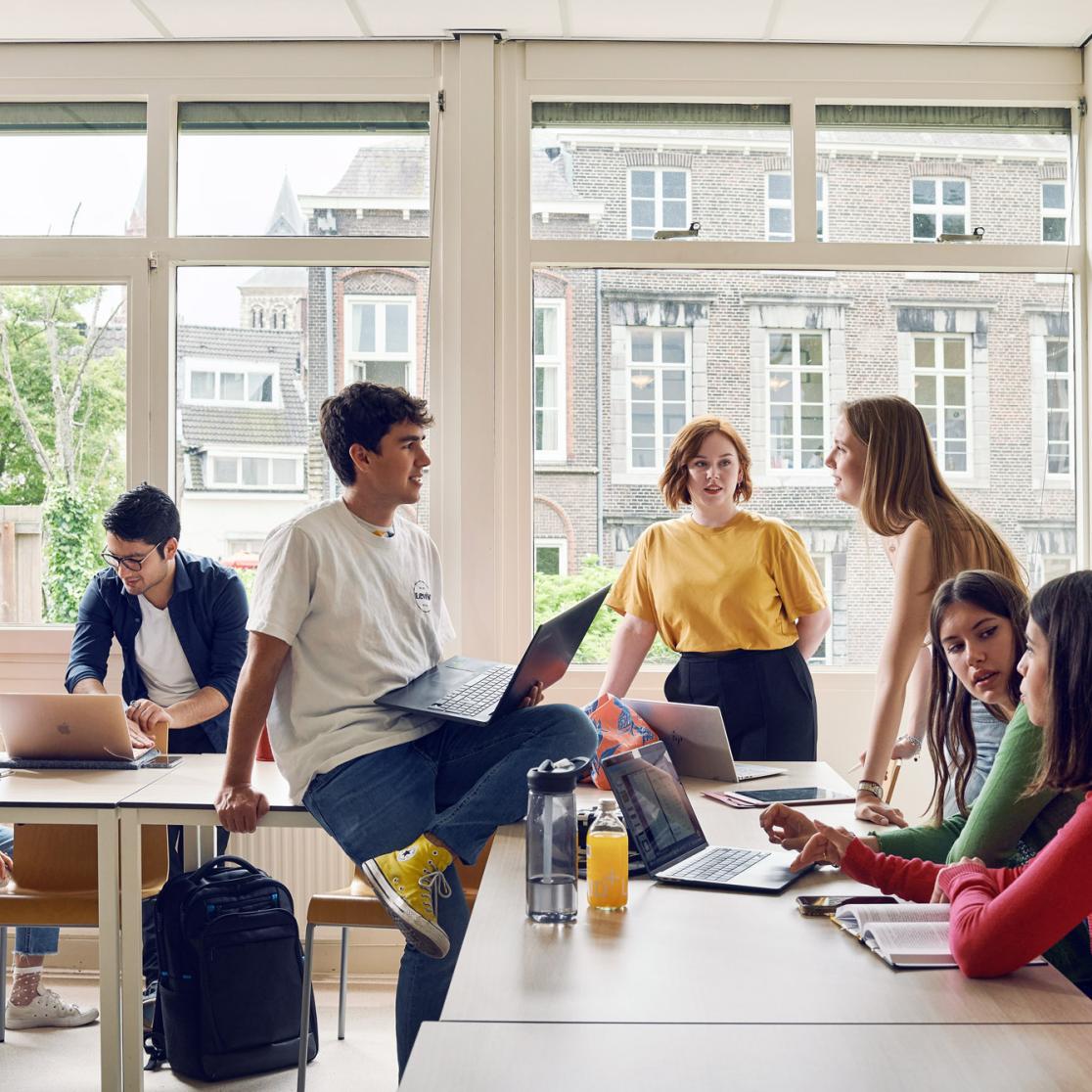
You’re part of a collaborative, international community
At UM, you’re part of a close-knit, international community. Through collaborative teamwork, you learn from each other’s diverse perspectives. You stimulate and challenge each other to think differently and come up with solutions you may never have thought of on your own. This makes for a unique and exciting learning experience. Our teaching staff are not only experts at what they do but they are approachable and supportive, coaching you in discovering your own path and making the knowledge your own. These close interactions with fellow students and teaching staff create a true sense of belonging and help you feel right at home at UM.
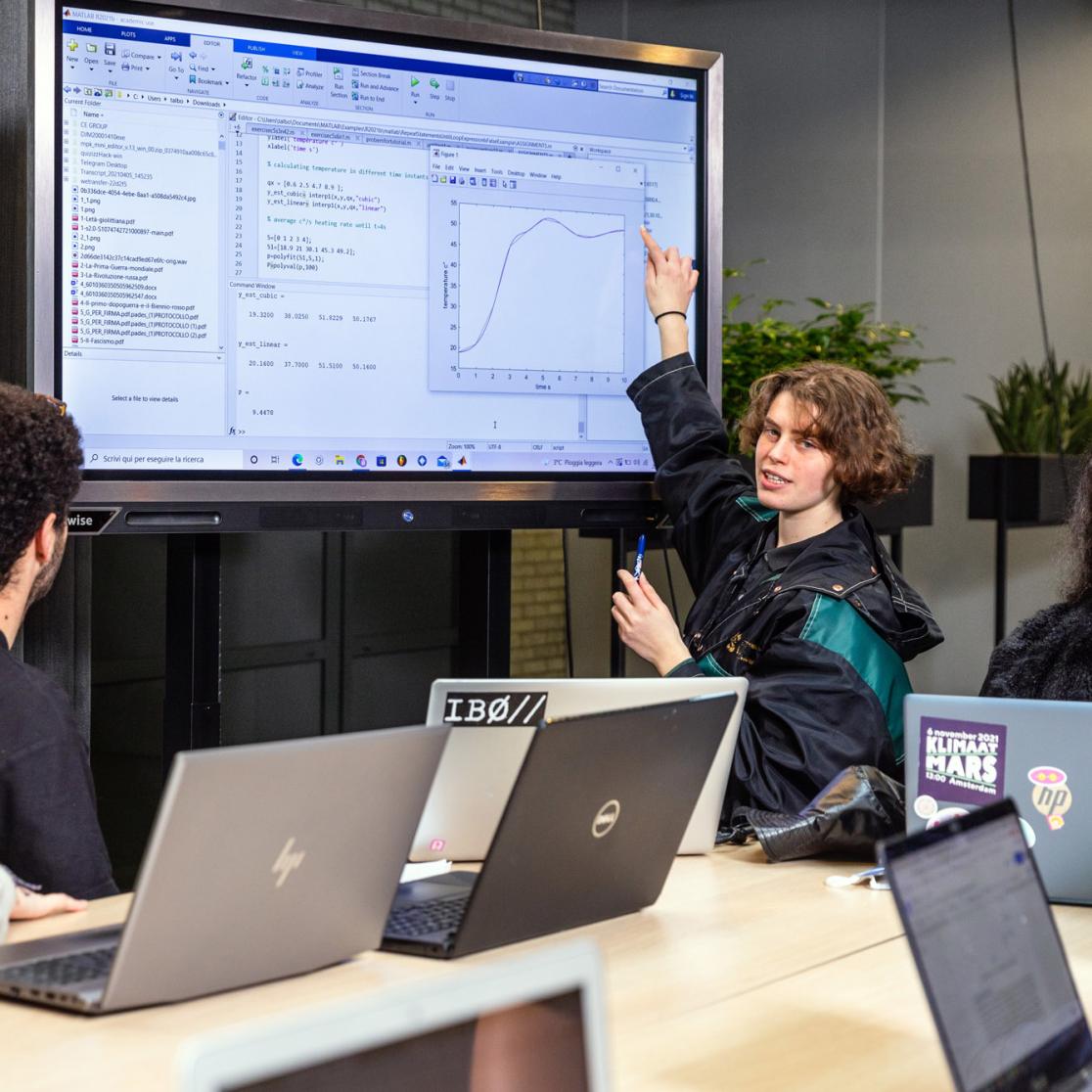
You discover more about yourself and the world around you
Studying at UM means tackling challenges that encourage reflection and spark creativity. The starting point is always an actual problem or challenge we are facing in society today. You learn to look at what you already know, identify what you need to learn and make connections between ideas that can help solve the problem. You explore new approaches and collaboratively develop unique solutions, discovering more about yourself and the world around you along the way. Working on authentic problems also helps you see the real-world impact of what you’re learning. This opens your eyes to your broader responsibility to society and your role as a global citizen.
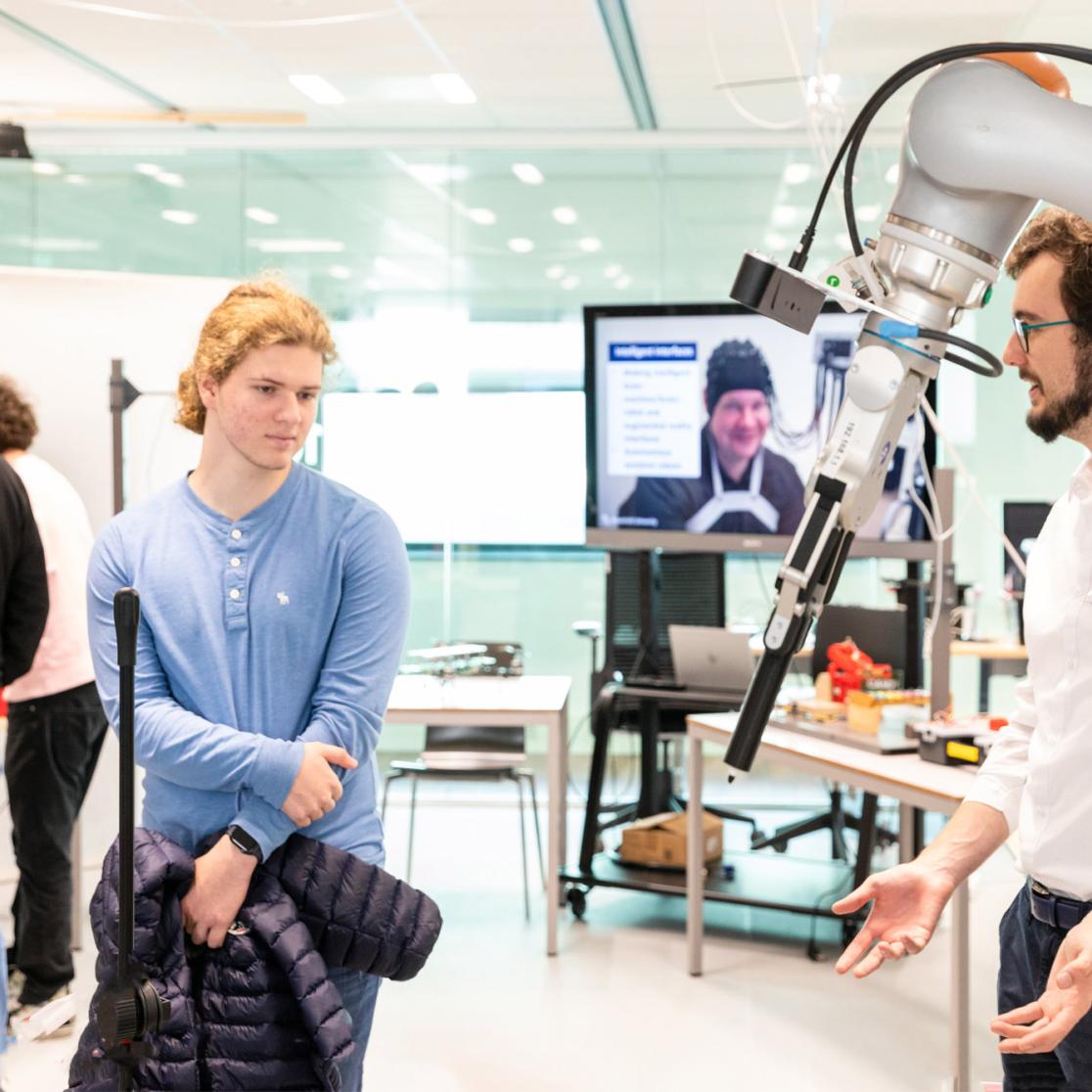
Worth checking out
Explore our programmes
Check out our programmes and find out how PBL is applied in the programme of your choice:
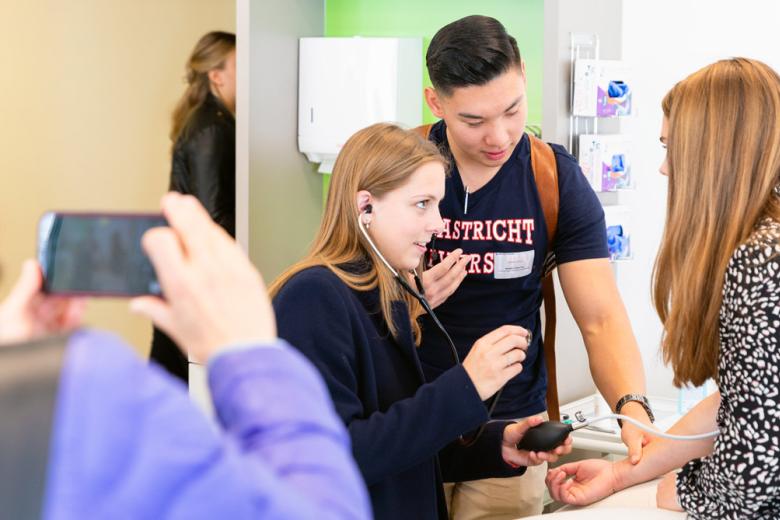
Chat with a bachelor's student
Who better to help you learn about PBL and choose a bachelor’s programme than a current UM student? Connect via chat or social media so they can share their insights.

Innovating PBL
At UM, we brought PBL to Europe and have been integrating this approach for decades. Find out more:
- Problem-Based Learning
- International learning environment
- Global Citizenship Education
We continually innovate our education practices through EDLAB, our Centre for Teaching & Learning.
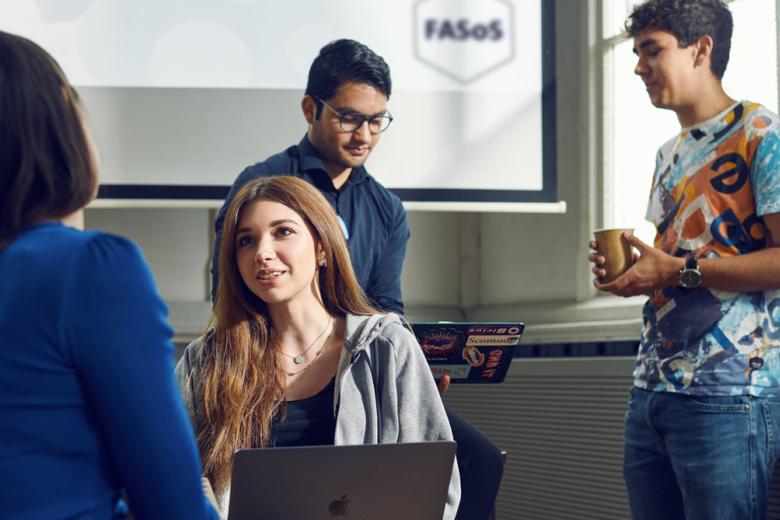
Connect with us
We're happy to answer all your questions about studying at UM.
join-us@maastrichtuniversity.nl
Facebook
Instagram
Frequently asked questions about PBL
What exactly is PBL?
PBL is a learning method where you work in small groups to solve real-world problems. Instead of just listening to lectures, you actively discuss, research, and present your findings. It’s hands-on, interactive, and helps you think like a professional from day one.
Why does Maastricht University use PBL?
Because it works! You learn better when you are engaged, curious, and solving problems that actually make sense in the real world. PBL also builds skills employers love – teamwork, communication, and critical thinking.
Will I still have lectures?
Yes, but fewer than in traditional education. Most of your time will be in small tutorial groups of about 10-12 students, plus some lectures, skills trainings, workshops, and self-study.
How much group work will I do?
You will have weekly tutorials (about 4-6 hours) where you work together to analyse problems, share research, and connect what you have learned. Outside of that, you’ll spend around 20 to 25 hours per week on self-study and other university activities like lectures or skills trainings.
Do I need to be super confident to speak up?
Not at all. Everyone contributes at their own pace, and your tutor helps make sure all voices are heard. You will get more comfortable speaking in groups over time – that is part of the learning process.
What does a “tutorial” look like?
It is a 2-hour session with your tutor and group, discussing a case or problem. You brainstorm, set learning goals, and then research them before the next meeting.
How much self-study is there?
You will spend a good amount of time each week researching, reading, and preparing for your group discussions – usually more than in traditional lecture-based learning. This helps you get the most out of your tutorials and really understand the material.
What skills will I develop?
You will get better at problem-solving, critical thinking, teamwork, and time management. You’ll also improve your research skills, communication, and ability to adapt – all essential in any career.
What could be challenging about PBL?
You have to be proactive – no one will spoon-feed you the answers. At first, it can feel overwhelming to manage your own learning, but this is exactly how you will become more independent, organised, and confident.
Is PBL harder than “normal” learning?
It’s different. You need to take more responsibility for your own learning, but you will also remember more because you are actively involved.
How is my performance assessed?
Through exams, presentations, essays, and participation in tutorials. Your tutor will also give feedback on your teamwork and preparation. In some programmes, you will also be assessed through a portfolio that collects your work, reflections, and progress over time.